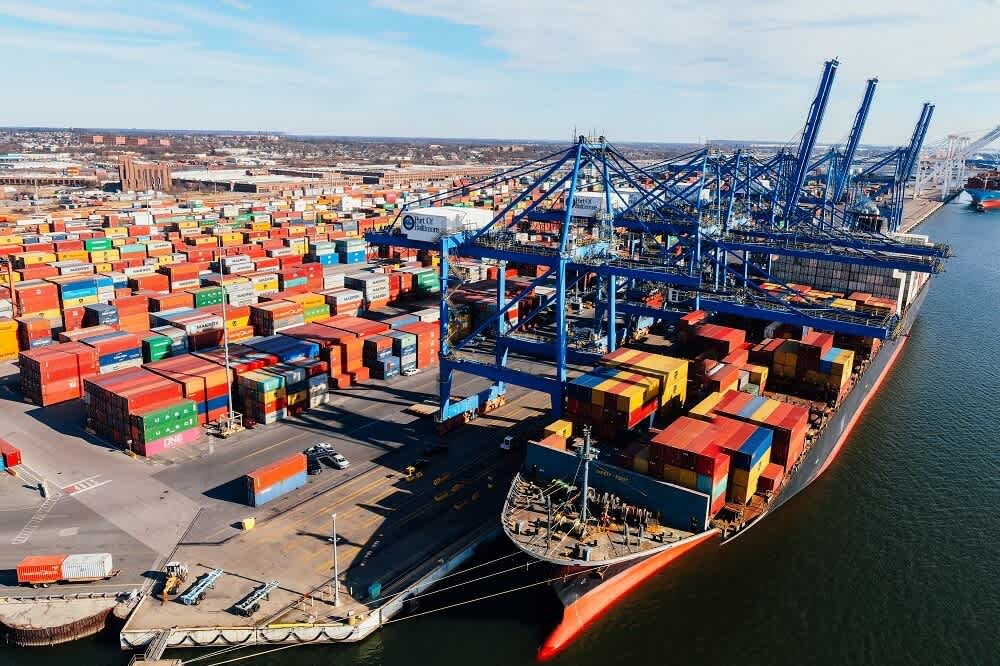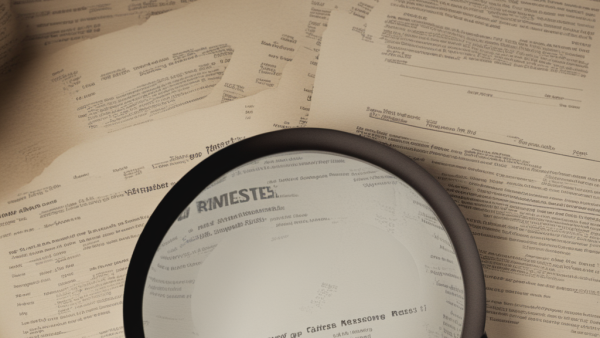
by Sam Franklin | June 03, 2022 | 11 min read
The comprehensive guide to marine cargo insurance
Get fundedLast updated: June 03, 2022
As an eCommerce business owner, shipping is often one of the most integral parts of your day-to-day practices. Getting your goods to clients safely after purchasing them is the final step of completing a sale. You need to make sure the goods arrive as quickly as possible, but it is also essential that the goods arrive undamaged and are insured if they get lost.
The problem is that the entire logistics industry comes with many unknowns as goods often travel for thousands of miles on many different modes of transport. Anything can happen along the journey, and it is always your responsibility to understand the best measures to protect any financial exposure to yourself and your clients.
This is where marine cargo insurance comes into play.
Marine insurance is a vast market, especially considering that $59 billion worth of cargo is imported and exported out of the UK every year.
You might instantly think that marine insurance is not your responsibility and that your goods are already insured. However, you would be surprised to learn that hauliers typically have limited liability when uncommon disasters occur. Your goods have no coverage if they are lost or damaged in most cases.
If you are looking for more information regarding marine insurance and how you can benefit from it, you’re in the right place. This article will cover why marine insurance is essential for you to consider, the contents of a typical marine insurance policy, and how to claim if things go wrong.
Table of contents
- What is marine insurance?
- The contents of a marine cargo insurance policy
- The marine cargo insurance claims procedure
- Marine insurance costs
- Is marine cargo insurance worth it?
- Conclusion
What is marine insurance?
Marine insurance protects you against potential financial exposure arising from physical damage or losses to goods while being transported worldwide.
Although the term “marine” might make you instantly think of sea transport, the coverage expands to any goods in transit by road, rail, sea, or air.
The marine logistics industry involves numerous parties working together to deliver goods from their origin to their destination. With so many parties involved – and multiple stages along the journey – it’s no surprise that anything can happen to goods during their voyage.
Marine insurance helps cover all parties involved by reducing the financial risk exposure and liability when accidents occur.
If you think about it carefully, practically anything can happen during transportation. For example, there could be a collision on the water, the damage could occur during the loading or unloading of goods, or entire cargo containers could be lost or stolen. Each of these scenarios poses a financial risk and can destroy meaningful relationships with clients you’ve spent years developing.
Therefore, marine insurance is a must-have for ship owners, shipping corporations, and cargo owners determined to mitigate their risks.
There are many different types of transit insurance policies available. Each policy document has differing insurance coverage levels, and the party liability is limited depending on the policy.
What are the two types of marine insurance?
There are two main types of marine insurance.
The first is known as Hull Insurance, which is insurance for ships that carry goods.
The second is Marine Cargo Insurance. Marine cargo insurance protects goods during loading and unloading, storage, and transportation. In addition, the cover provided could be vital for maintaining strong relationships with your clients if something goes wrong.
You should certainly consider marine cargo insurance if you are shipping goods for clients across the globe.
Who is marine cargo insurance for?
Marine cargo insurance is essential for small and large businesses that import, export, or distribute goods around the UK and the wider world.
According to the Marine Insurance Act 1906 (MIA), any company with an “insurable interest” can take out marine cargo insurance.
The insurable interest covers raw materials, finished products, general merchandise, machinery, and appliances. Therefore, manufacturers, merchants, wholesalers, retailers, and distributors all have an insurable interest and should all be aware of marine cargo insurance and its protection relative to the entire marine insurance market.
Why do I need marine insurance?
Although marine insurance is often considered unnecessary, the cover can protect all interested parties from expensive burdens when things go wrong.
You see, hauliers typically don’t insure cargo individually. Instead, they acquire a marine policy that only covers their liability for loss or damage to goods. Even if they are liable in the event of loss or damage to goods, their contract conditions typically result in clients only being able to reclaim a fraction of the actual cost of the goods.
For example, in the UK, the Road Haulage Association (RHA) Limited Conditions of Carriage 2009 states that a carrier’s liability is limited to the lesser of:
The value of the goods lost or damaged
The cost of repairing any damage
A sum calculated at the rate of £1,300 per tonne on the gross weight of the goods lost or damaged
Essentially, if two tonnes of cargo worth £20,000 were lost or damaged during transit, the carrier would only be liable to repay £2,600 (£1,300 x 2) under the RHA Conditions of Carriage 2009. According to this example, it would mean that you or your client would be significantly out of pocket.
Therefore, you must know if your client’s goods are covered, especially if the total value is above £1,300.
Five critical reasons for you to consider taking out your own marine policy
It reduces exposure to financial loss for you and your client. In any business, it is always essential to protect a client's financial interest if something goes wrong, which can always happen in the shipping industry.
It is usually a contractual requirement. Typically, insurance is part of the terms of sale as it provides a method to replace damaged or lost goods quickly. Additionally, if third parties are involved in the sale, such as a bank, they would also make it a contractual requirement to cover their risk.
It protects against General Average. General Average is a legal principle in Maritime Law which states that all cargo owners in a particular voyage are required to proportionally share the cost associated with any significant loss or sacrifice of cargo.
General Average can occur when disasters happen, such as a fire on board, a stranded ship, or a container stack collapse.
In any of the scenarios above, cargo owners have the legal obligation to pay an equal amount to have their goods released – even if your goods are not damaged.
Carrier’s liability insurance doesn’t provide complete protection.
A carrier’s liability is limited by contract law in most cases. Additionally, the carrier’s liability insurance doesn’t cover you in the event of a General Average or acts of God.
Clients maintain full ownership of insurance.
Even if the other party is responsible for the insurance, it is often a complicated process to claim with foreign insurance brokers. In addition, having your goods replaced can be a time-consuming process if the insurance isn’t in your name.
For example, let’s say you are a UK retailer that imports goods from China. The supplier might have a voyage policy included in the sales contract. However, the insurance is likely to be taken out with a Chinese insurer. So, if something goes wrong, the retailer would need to contact the Chinese insurer – typically through an agent. As you would expect, this would take a long time with many communication delays, and there are no guarantees that the overseas insurer is even regulated.
A simple solution to this problem is for you to arrange your own insurance policy through a UK insurance company. Then, if the retailer needs to claim, the process would be quicker as the policy is in the buyer’s name, and the insurance cost is still likely to be competitive.
The contents of a marine cargo insurance policy
What does marine insurance cover?
Typically, the insurance covers the loss or damage to property caused due to:
Natural disasters
Man-made disasters such as theft and piracy
Collision or derailment of land transit
Incidents related to ships such as sinking or stranding
The loading and unloading of cargo
Storage in warehouses between transit stages for up to 60 days
Incurred expenses such as survey fees and reconditioning costs
Maritime principles such as General Average
The coverage varies across policies, and there are several clauses to be aware of. There are three main types of Institute Clauses, A, B, and C, spanning different levels of coverage from the list above.
In fact, there are over 150 other Institute Clauses tailored to meet the needs of specific trades. You can usually find a complete list of all clauses in the policy documentation.
What doesn't it cover?
There are also some things to be aware of that aren’t covered and can affect your liability. These include the loss or damage to property caused by:
Insecure packaging by suppliers for the method of transport used
Intentional damage or misconduct
Spoilage due to the product’s nature – such as perishables and combustible substances
Dangerous goods such as firearms and ammunition
Shipping delays resulting in deterioration of goods
Ordinary wear and tear
Riots, strikes, or war
The financial default of the owners or operators of the vessel
The marine cargo insurance claims procedure
If you need to claim, the procedure varies for different insurance brokers. Typically, they will have a claims form and will require a list of the following information and documentation:
Name and contact details of the authorised policyholder
A brief description of the event
Certificate of insurance
Transit documentation such as the Bill of Landing or CRM Note
Commercial invoice
Packing/contents list
Weight of consignment
Weight of damaged or lost goods
Claused delivery note
Correspondence from the carrier holding them responsible
Photographs of damage – if applicable
Driver’s statement – if applicable
In addition, you must notify the insurer of a potential claim within the insurer's time policy from the date of the incident. Typically, a time policy of 30 days is used for most insurance brokers.
Marine insurance costs
The cost of marine insurance depends on the shipment in question, and it usually is conditional on factors such as:
The type of goods transported
The cost of the goods transported
The type of transportation and the carriers used
The region the goods will be travelling from and to
How the cargo is packed
Typically, insurance brokers provide personalised quotes for single shipments or annual policies.
Marine insurance brokers
If you want to take out insurance to cover your financial risks, it would be wise to head to an insurance broker. These brokers typically consist of an experienced team that is fully trained in cargo, freight, and marine insurance, and they can assist in finding the proper coverage.
More importantly, insurance brokers often have a dedicated team to contact if you need to make a claim.
Which companies provide marine insurance?
The marine insurance marketplace contains a wide range of traditional insurance and specialised marine brokers. Some of the top names include:
Is marine cargo insurance worth it?
Taking out an insurance policy always involves weighing up the individual costs and benefits on a case-by-case basis. You also need to check what the insurance covers and if it meets your individual requirements.
Insurance is worth taking out in many circumstances, especially if the shipment involves a significant portion of your inventory.
Marine insurance pros
Full coverage against financial risks if any accidents occur during transit
Cover during loading and unloading of goods
Cover during the storage of goods in warehouses for up to 60 days
A quick and straightforward claims process to replace lost or damaged goods
Peace of mind knowing that your client’s goods are fully insured
Marine insurance cons
Additional costs are associated with the shipping
It is not always required for low-value products
Insurers sometimes refuse to pay if suppliers fail to package cargo correctly
There are requirements for additional clauses to insure against war and strikes
Conclusion
It can be tricky to decide if you need to take out marine cargo insurance. Weighing up the benefits and costs of taking out a policy varies with each business.
The bottom line is that if you can’t afford to replace your client’s goods if they are lost or damaged, you need to take out the coverage. Although it does add further costs to your business, it also provides peace of mind that your customers' goods are insured.
Here at Bloom, we will cover the insurance of the first shipment if it is financed via Bloom purchase order financing, so you don’t have to worry about taking out the first policy yourself!
Written by

Sam founded his first startup back in 2010 and has since been building startups in the Content Marketing, SEO, eCommerce and SaaS verticals. Sam is a generalist with deep knowledge of lead generation and scaling acquisition and sales.


